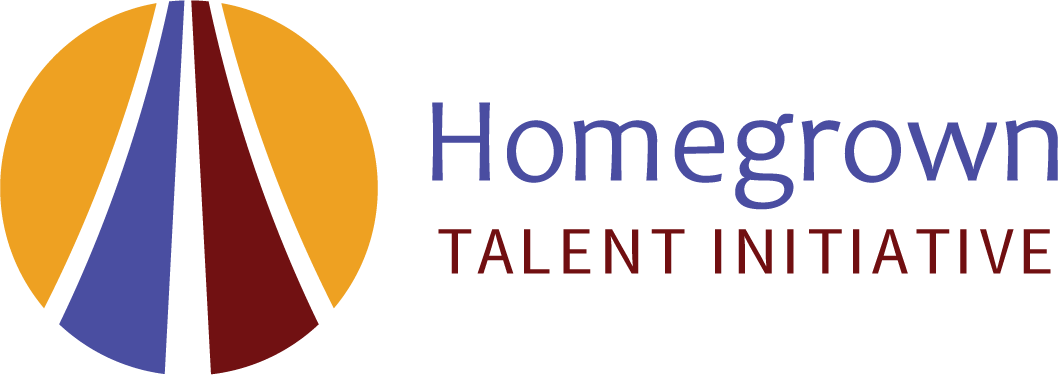
Cañon City Schools – Homegrown Talent Initiative exemplar and 2019 Winner of The Succeeds Prize for Excellence in STEM Education – shared early strategies and lessons learned from their rural district’s response efforts one month since COVID-19 disrupted our schools and communities.
The virtual learning session, facilitated for the 8 rural communities selected to participate in the Homegrown Talent Initiative, features the voices of George Welsh, Superintendent, Cañon City Schools; Bill Summers, Principal, Cañon City High School; and Adam Hartman, District Director of Curriculum, Instruction and Assessment. These forward-thinking leaders discussed early action and planning, social-emotional needs, shifting to digital instruction, and maintain work-based learning partnerships.
Here’s what we heard is driving the district and community forward:
1. Lean In to Your Core Values
It the midst of crises, it can be challenging to find and maintain hope. For Cañon City, they knew that doubling down on their core values would guide them through the many challenges ahead. This meant leaning into taking risks and innovation, and prioritizing positivity and collaboration above all else. Leadership focused on what they CAN do – not the constraints – and how to be an asset and beacon of hope to the community, instead of an overwhelming burden.
2. Collaborate & Take Action Early
Keeping their core values, students, and families at the forefront, leadership made the decision early on to plan for the worst. Over Spring Break, the Cañon City team got the right people around the table to collaborate and have solutions-oriented conversations – something they note as critical to early buy-in and momentum. During this planned time away, staff worked overtime to develop communications, systems, and structures on the premise kids would not be returning to school.
Critical to this plan was establishing a unified approach and message across the district to be shared with students and families. This included how and when materials would be disseminated, the general structure of the day, and grading and attendance policies. Benefits of this streamlined approach were two-fold: 1) reduced confusion amongst parents and families and got them on board early; and 2) took administrative burdens off teachers so they could focus strictly on adapting instruction.
3. Address Basic & Social-Emotional Needs First
Cañon City knew that before they could meet educational needs, they needed to address basic and social-emotional needs first – something leadership has coined “Maslow before Bloom”. The district assessed all essential employees and services right away, ensuring counseling and food supports were accessible to families. Then, they looked at technology needs, prioritizing grade levels and families who were without devices.
In a clear demonstration of their core value of risk-taking, the district found a vendor who could expedite an order of Chromebooks as well as the resources to make immediate payment – a plan that would have been rolled out over several school years. However, the reward of reducing a technological divide largely outweighed the risk, and the district was able to provide these 3-day quarantined devices to families upon returning from Spring Break.
4. Empower Educators
While they were not without push-back in the early days of COVID-19, leadership was able to get buy-in from its educators by continuing to push positivity, collaboration, and district unity. Moreover, they sent a clear message early on that there is no longer a choice or discussion about innovation – everyone must adapt, take risks, try and learn new things. Educators who may have been afraid to fail or go outside their comfort zone were now creating and innovating out of necessity. Educators felt empowered to do what they needed to do to adapt curriculum, engage their students, and address the new realities of teaching virtually – many who were now upskilling in the diverse platforms, websites, and tools themselves.
5. Continue Engaging Community Partners
Ensuring all of Colorado’s kids have access to high-quality educational experiences aligned to the Career-Connected Learning Continuum is an overarching goal of Colorado Succeeds and the Homegrown Talent Initiative. The final key takeaway we heard from Cañon City is that you can, and you must, continue to engage business and other community partners.
Cañon City focused on keeping their partners, particularly those who were offering work-based learning through internships, at the table. They talked about how the school community could serve and support the business community now; and collaboratively brainstormed ways to adapt internships to virtual experiences, as well as what partnership could look like in the future.
While things may look different, it is critical to keep your key stakeholders engaged and part of the solution for your students and community.
Want to get involved with the Homegrown Talent Initiative or COVID-19 response efforts? Send us an email and we’ll find unique opportunities for you or your organization to engage!
info@homegrowntalentco.org
The Homegrown Talent Initiative (HTI) aims to provide the resources and supports needed to develop a Colorado where ALL students are lifelong learners. HTI is rooted deeply in the context of local community assets and needs, cultivating and solidifying partnerships between often siloed organizations. Facilitated by Colorado Succeeds and the Colorado Education Initiative and supported by local and national foundations, including the Daniels Fund, Walton Family Foundation, Gill Foundation, and The Beacon Fund.
To learn more about the communities and access additional resources visit: www.HomegrownTalentCO.org
